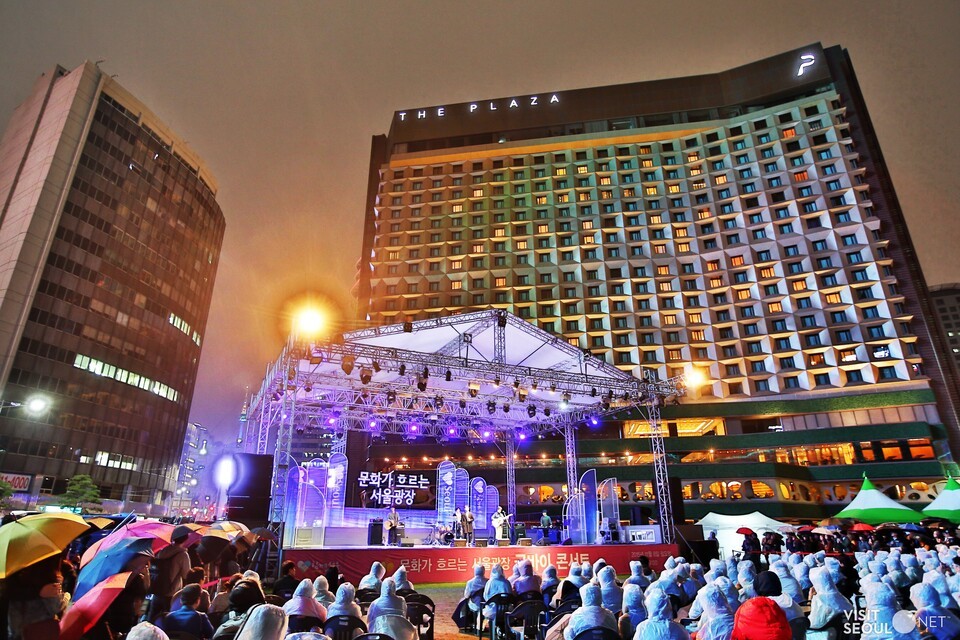On the occasion of Arbor Day on April 5, the Seoul Metropolitan Government announced that it is expanding the role of culture and arts as a means of environmental protection and sustainability by introducing examples of eco-friendly management practices in the cultural and arts fields.

An example is the Seoul Museum of Craft Art, which reduced waste by simplifying exhibition structures and introducing a QR-based explanation system to replace paper leaflets during the ‘Beyond Decoration’ exhibition held last year. In 2020, the Sejong Center for the Performing Arts became the first theater to introduce a QR-based unmanned ticketing system called ‘Speed Gate,’ leading the way in zero-waste practices in the performing arts sector.
The Seoul Metropolitan Government has installed a permanent stage at ‘Seoul Plaza with Flowing Culture’ to reduce waste and budget waste caused by repetitive stage constructions. This year, the Seoul Philharmonic Orchestra plans to reuse the same stage equipment for large outdoor performances.
Furthermore, Seoul is transitioning the ‘Monthly Cultural Events Booklet’ to an online format, and only a large print version will be minimally produced for the visually impaired to reduce paper usage.
Eco-friendly infrastructure is also being developed. The Dongdaemun Seoul Metropolitan Library, scheduled to open in 2030, will be a low-carbon wooden structure, and the Seodaemun Seoul Metropolitan Library, scheduled to open in 2027, will be created as a ‘Forest Library’ in connection with green spaces.
The Seoul Foundation for Arts and Culture is implementing resource circulation and a sharing economy through the ‘Restage Seoul’ platform for sharing performance items. In 2023, the foundation saved approximately ₩178 million in production costs through 3,417 rentals and 1,826 consignments. The foundation is also contributing to the creation of a sustainable ecosystem for the arts by establishing 101 ESG partnerships.
Cultural facilities under the Seoul Metropolitan Government are establishing an internal eco-friendly culture, such as reducing single-use items, holding paperless meetings, and producing eco-friendly souvenirs. The Sejong Center has designated ‘Environment Keepers’ in each department to encourage practice.
Ma Chae-sook, head of the Seoul City Cultural Headquarters, said, “I hope that Arbor Day is not just a day to plant trees, but also a day to nurture sustainable environmental values within our culture and arts.” She added, “We will continue to work with citizens, artists, and cultural institutions to create a sustainable cultural and artistic environment in response to the climate crisis, and make ‘Blue Cultural City Seoul’ a place everyone can enjoy together.”